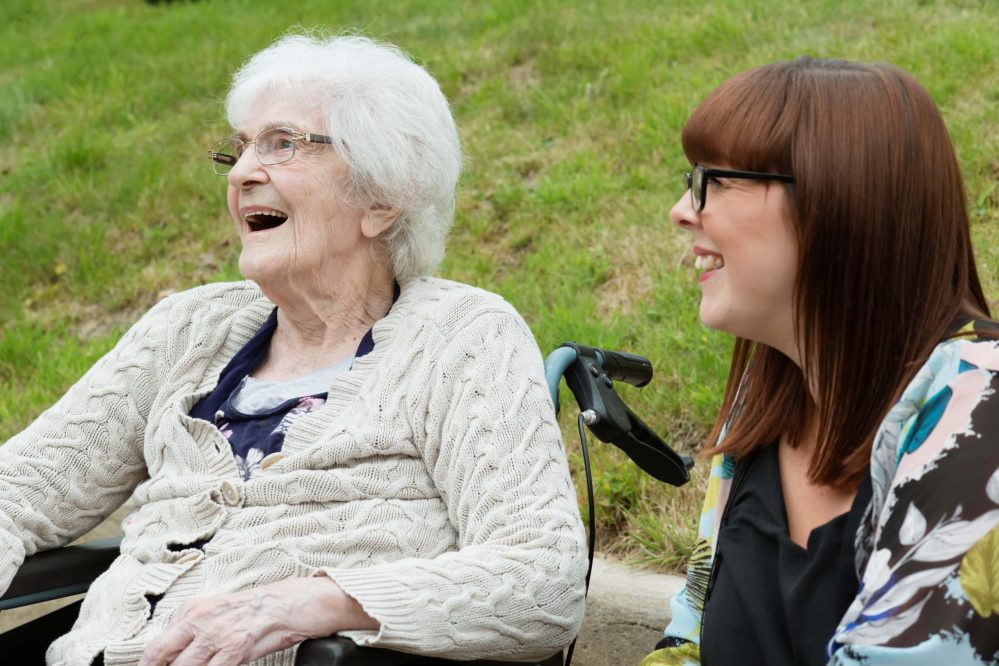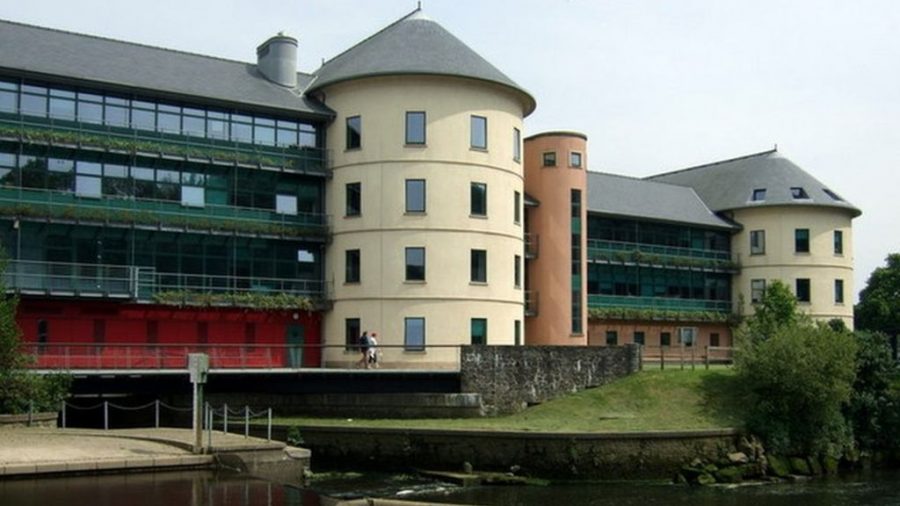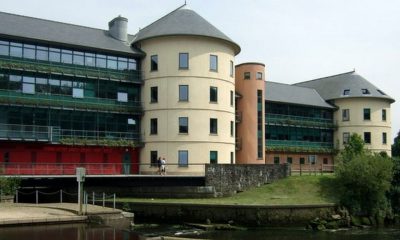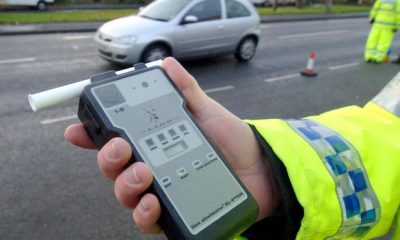News
Welsh pensioners to receive state pension increase amidst mixed reactions

STARTING this month, over 600,000 pensioners across Wales will see their State Pensions rise by up to £470 annually, following the UK Government’s adherence to the ‘triple lock’ policy. This policy ensures that pensions increase each year by the highest of average earnings growth, inflation, or a minimum of 2.5%.
Government’s Position
The UK Government has emphasized its commitment to supporting pensioners through the triple lock. In a recent statement, it was noted that this commitment would result in the State Pension increasing by up to £1,900 over the course of the current Parliament.
Opposition and Think Tank Critiques
However, the policy has faced criticism from various quarters. The Liberal Democrats have raised concerns about the real impact of the pension increase, pointing out that due to the freezing of income tax thresholds, a significant portion of the pension rise could be offset by increased tax liabilities. They estimate that a typical basic rate tax-paying pensioner might see 77% of the pension increase negated by these tax measures.
Additionally, the Institute for Fiscal Studies (IFS) has questioned the sustainability of the triple lock mechanism. They argue that while the policy aims to protect pensioners’ incomes, it may not be the most efficient approach and could lead to unpredictable fiscal burdens.
Pensions Minister’s Stance
Torsten Bell, the newly appointed Pensions Minister, has previously described the triple lock as “rubbish” and advocated for its replacement with a system that aligns state pension increases with benefits for jobseekers and the long-term sick. Despite his past remarks, recent reports indicate that he is now “fully committed” to maintaining the triple lock.
Economic Implications
Financial experts have also highlighted potential unintended consequences of the pension increase. The freezing of personal tax allowances means that some pensioners may find themselves pushed into higher tax brackets, thereby reducing the net benefit of the pension rise. This situation underscores the complex interplay between pension policies and tax regulations.
In summary, while the increase in State Pensions is a welcome development for many Welsh pensioners, it has sparked a broader debate about the effectiveness and sustainability of the triple lock policy, as well as its interaction with the broader tax system.
Local Government
Independent panel gives positive verdict on Pembrokeshire County Council

Four-day assessment highlights improvement, leadership and governance
AN INDEPENDENT panel has concluded that Pembrokeshire County Council is meeting its statutory performance requirements and has shown improvement across a number of key areas.
The findings follow a four-day visit in October 2025, when a group of external peers carried out a Panel Performance Assessment (PPA), a process required once every electoral cycle under Welsh Government legislation.
The purpose of the PPA is to provide an independent expert view on how effectively the council is using its functions, how it deploys resources, and whether its governance arrangements are fit for purpose.
The four-member panel was led by Phil Roberts, independent chair and former chief executive of Swansea Council. Other members were Cllr Anthony Hunt, leader of Torfaen Council; Emma Palmer, chief executive of Powys Council; and Andrea Street OBE, representing the public, private and voluntary sectors.
In its final report, the panel concluded that Pembrokeshire County Council is meeting its statutory requirements and commented favourably on many aspects of its work. The authority was described as effective, having responded well to a challenging financial position and demonstrated improvement in a number of key areas.
Among the report’s findings was praise for “a cohesive cabinet, which despite its rainbow coalition arrangements, exercises a model of distributed leadership which is particularly effective”. The panel also highlighted “a committed Senior and Extended Leadership Team who recognised the journey of improvement the council has been on under the Chief Executive’s strong leadership”.
The panel further noted “a broad set of values and behaviours consistently demonstrated across the organisation, from the Senior Leadership Team to frontline staff”, adding that there was “a genuine desire to work in the interests of the communities and residents of the county”.
While the overall assessment was positive, the report also identified areas where further progress could be made. Seven recommendations were set out, covering scrutiny arrangements, corporate capacity, collaborative leadership, economic regeneration capacity, resource prioritisation, communications, and transformation and innovation.
Council leader Jon Harvey welcomed the report, describing the assessment as a constructive experience.
“This was an extremely positive experience for the council, and an opportunity to learn and benefit from the views and perspectives of independent experts from outside the authority,” he said. “We welcome the assurance provided by the panel that we are on the right track, and the feedback which has helped to identify opportunities and areas for improvement.”
Cllr Harvey also thanked panel members for their work, along with officers from the Welsh Local Government Association who supported the assessment process.
“We accept the panel’s findings in full and I am convinced that the action plan we have developed in response to the recommendations will enable us to further strengthen key areas of our work so we can continue to provide quality services to our residents and communities,” he added.
In line with legislation, the council has produced a formal response and action plan setting out how it will address the panel’s recommendations. These will be presented to Cabinet on February 9 and to full council on March 5 for formal approval.
News
Kurtz calls on Labour MPs to back release of Mandelson papers

Opposition motion follows Epstein-linked document disclosures
A SENEDD Member has called on Labour MPs to support a Conservative Opposition Day Motion demanding the release of papers linked to Peter Mandelson’s appointment as the UK Ambassador to the United States.
Samuel Kurtz said the motion follows the publication of new files and photographs involving Lord Mandelson, which were released as part of a United States investigation into the disgraced and convicted child sex offender Jeffrey Epstein.
Speaking out, Mr Kurtz said that during Prime Minister’s Questions, the Prime Minister admitted he was aware of Peter Mandelson’s ongoing relationship with Epstein at the time of his appointment.
“That means the Prime Minister knowingly appointed Peter Mandelson to one of the most important diplomatic roles in government despite his links to Epstein,” he said. “This raises serious questions about the Prime Minister’s judgement.”
Mr Kurtz went on to accuse the Prime Minister of attempting to prevent transparency over the appointment process.
“Now, instead of being open and transparent, the Prime Minister is attempting to block the release of documents relating to Mandelson’s appointment in order to protect his own position,” he said.
He warned that Labour MPs who oppose the motion would share responsibility for withholding information, adding: “If Labour MPs support blocking the release of these papers, they will be complicit in covering up the process and judgement that led the Prime Minister to appoint Peter Mandelson as Ambassador, despite his friendship with Jeffrey Epstein.”
Crime
Drink-driver narrowly avoided collision in town centre

Motorist almost three times over legal limit
A DRINK-driver narrowly avoided crashing into another vehicle while almost three times over the legal alcohol limit, a court has heard.
Nathan Lloyd, 33, was seen driving a Nissan X-Trail in Haverfordwest in the early hours of December 20 without headlights.
Police followed the vehicle, which narrowly missed a car and struck a kerb before being stopped.
Lloyd, of Adams Drive, Narberth, recorded a breath reading of 97 micrograms of alcohol, nearly three times the legal limit.
He was disqualified from driving for two years and given a 12-month community order requiring 80 hours of unpaid work and 20 rehabilitation days. He was ordered to pay £114 surcharge and £85 costs.
-

 Health6 days ago
Health6 days agoConsultation reveals lack of public trust in health board
-

 Community7 days ago
Community7 days agoPembrokeshire students speak at national Holocaust Memorial Day event
-

 News1 day ago
News1 day agoPrincess of Wales visits historic Pembrokeshire woollen mill
-

 Crime5 days ago
Crime5 days agoPembroke man accused of child sex offences sent to Swansea Crown Court
-

 Education7 days ago
Education7 days ago‘Vulnerable teen’ questioned by police at Milford Haven School
-

 Education7 days ago
Education7 days agoAttendance concerns at Milford School reflect wider issue raised at the Senedd
-

 Health3 days ago
Health3 days agoDoctor struck off after sexual misconduct findings at Withybush Hospital
-

 Community6 days ago
Community6 days agoCampaign to ‘save’ River Cleddau hits over 2,200 signatures


































